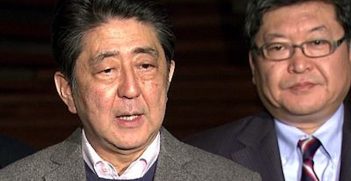The AUKUS Expansion: A Step Towards Bolstering Security and Stability in the Indo-Pacific

AUKUS is a program with big promises for reinforcing regional security through technology transfer and multination force interoperability. Bringing Japan into the Pillar II platform will enhance capabilities and strengthen deterrence.
The recent discussions between President Joe Biden and Japanese Prime Minister Fumio Kishida regarding the potential expansion of the AUKUS security pact to include Japan as the first additional Pillar II partner signify a significant development in the ongoing efforts to address security concerns in the Indo-Pacific region. AUKUS, initially established in 2021 by Australia, the United Kingdom, and the United States, emerged as a direct response to China’s escalating military expansion. The anticipated expansion of AUKUS reflects the growing recognition of the need for collaborative security measures to counter China’s military advancements and territorial assertiveness in the region. AUKUS pillar II involves collaborative efforts in developing advanced military technologies such as quantum computing, undersea capabilities, hypersonic weapons, artificial intelligence, and cybersecurity.
The cornerstone of AUKUS is the agreement to provide Australia with access to nuclear-powered submarines, a move that underscores the seriousness with which the member nations regard China’s growing military assertiveness. The initial decision to provide Australia with nuclear submarines was not merely about enhancing Australia’s naval capabilities; it is also a clear signal of solidarity among like-minded nations in the face of a common challenge. The possibility of Chinese military action across the Taiwan Strait as further intensified member efforts to create a diplomatic and security front with the capacity to intervene alongside the US in the event of a military conflict between China and Taiwan.
But it was Australia’s strategic drive for a strengthened deterrent which was pivotal in forming the pact. Australia’s joining of AUKUS highlighted its aim to enhance defensive capabilities, adapting to evolving security landscapes pro-actively in line with broader national security goals, and demonstrate Australia’s commitment to regional stability.
The proposed expansion of AUKUS to include additional like-minded nations, starting with Japan and potentially involving Canada, New Zealand, and South Korea, underscores the broader commitment among AUKUS nations to addressing regional security challenges collectively. Japan and South Korea, in particular, have expressed growing concerns about China’s behaviour, making them natural partners for joining on to the second pillar platform. The inclusion of these countries would not only enhance the security pact’s credibility by overcoming its exclusive Anglosphere image but also improve military interoperability and defense industrial collaboration among member states.
However, it is essential to acknowledge that AUKUS is still in its early stages and primarily serves as a platform for military cooperation rather than a fully-fledged security structure. While the expansion of AUKUS holds promise for bolstering defense technology ties and deterring China’s military expansion, caution must be exercised to ensure that existing initiatives, such as supplying Australia with nuclear-powered submarines, are adequately developed before expanding the alliance further.
An expansion of AUKUS pillar II collaboration would foster closer defense technology sharing among its member countries. With more partners involved, the broader sharing of expertise, resources, and possibly joint research and development efforts is likely to bolster regional security more. Such partnerships have the potential to lead to advancements in military capabilities and technological innovation, and even bring China more into governance regimes that moderate advanced technology acquisition and military use. Such an expansion will not result in immediate alterations of power dynamics in the short run. China is expected to persist in its military advancements and operations in the South China Sea, regardless of AUKUS’ expansion. Bringing more members to AUKUS would strengthen the members’ collective security capabilities and contribute resources, intelligence, and expertise to broadening its reach and influence in the Indo-Pacific region. A larger coalition with significant military capabilities could dissuade aggressive actions and provide a more robust defence posture for members, particularly regarding China’s growing influence and assertiveness.
AUKUS remains a fledgling security pact endeavouring to yield tangible advantages. It has yet to evolve into a comprehensive security framework and is better characterised as a mechanism for fostering military collaboration and operational synergy among a tightly-knit set of nations. With that being said, AUKUS expansion has the potential to reshape the regional power balance, notably favouring the US and its allies. Through enhanced technology and defence collaboration these nations could project a robust collective presence in the Indo-Pacific, moderating the strategic landscape and reinforcing a stronger and collective rules-based international order. This heightened military collaboration might deter China’s hegemonic aspirations by elevating the costs and risks so that such aggressive manoeuvres, as seen recently in the South China Sea against Philippines Coast Guard vessels, become unsustainable.
For the time being, AUKUS’ efficacy in curbing China’s dominance hinges on many factors, these of course encompass China’s own response, regional strategic challenges, and the coalition’s capacity to tackle technological and strategic hurdles.
In conclusion, while the expansion of AUKUS holds promise for enhancing defence cooperation and technology sharing among like-minded nations, careful consideration must be given to the timing and scope of expansion to ensure the effectiveness and sustainability of the alliance. AUKUS, with its promise to build further interoperability of forces and shared commitments, remains a critical framework for promoting regional security and stability in the face of evolving geopolitical dynamics in the Indo-Pacific.
Dr Ashok Sharma, Visiting Fellow, The University of New South Wales Canberra at the Australian Defence Force Academy.
This article is published under a Creative Commons Licence and may be republished with attribution.





